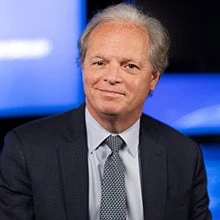 Photo credit: WorldBank/Banksia Films.
Photo credit: WorldBank/Banksia Films.
A true understanding of the Amazon comes from stepping into the forest—walking its trails, feeling its humidity, and listening to the people who have lived with it for generations.
During a recent visit to the community of Tumbira, in the State of Amazonas, northern Brazil, I was reminded of how much traditional know-how is still largely undocumented. What may seem like small practices, such as using tapiba ants to keep mosquitoes away or collecting the sweet amapa resin as a source of energy for long days in the forest, are actually part of a sophisticated system of local knowledge that’s been developed over centuries.
This experience reinforced something simple but profound: the Amazon is a living library. If we invest in systematizing and scaling its traditional knowledge, whether for innovative products, sustainable small businesses, or nature-based tourism, we can help generate jobs and income while protecting the forest’s ecological and cultural wealth.
Yet, to protect the Amazon—and our planet—we must rethink development so that people and nature thrive together. This means putting people and nature at the center of development, an approach that will help preserve forests, empower communities, improve livelihoods, and ultimately create a livable planet.
The Amazonia spans nearly 7 million square kilometers—twice the size of India—and holds half of the planet's remaining tropical forests. It covers about 40 percent of South America across eight countries. Home to 47 million people, the forest and life here are inseparable. Many people live in cities like Belém in Brazil, Iquitos in Peru, and Leticia in Colombia. Others reside in small towns and villages nestled within or along the forest’s edge, surrounded by towering trees and a tapestry of plants.
For most in these areas, the forest has been a lifeline and a source of identity, especially for the region’s two million Indigenous Peoples who have safeguarded it for thousands of years. Yet between 2001 and 2020, the Amazon lost forest cover equivalent to the size of France. Although the pace of deforestation has slowed, preventing further loss must remain an urgent priority.
 Photo credit: WorldBank/Banksia Films.
Photo credit: WorldBank/Banksia Films.
Forests, which cover over 30 percent of the Earth’s land, clean the air, stabilize local rainfall patterns, enrich soils, and preserve biodiversity. But their value doesn’t stop there. Healthy forests also support millions of jobs in farming, forestry, and nature-based tourism. The formal forest sector alone provides 33 million jobs globally, creating ripple effects across industries. For every 100 jobs in the forest sector, another 73 emerge across the wider economy.
Forests also provide renewable materials that can help reduce carbon emissions in production systems, from wood-based construction to fiber packaging that can replace plastics.
They can also promote prosperity. Consider the story of 55-year-old Lucineide Garrido, known as Neide in her community of Tumbira. Fourteen years ago, when logging was banned and her family faced uncertainty, she turned her craftsmanship into a business, transforming seeds, fibers, and palm materials into jewelry and decorative pieces. Today, she supports her family and employs four assistants. Neide’s story is one of thousands across the Amazon demonstrating that when communities have opportunities, they can create sustainable livelihoods that strengthen both their economies and their surrounding forests.
At the World Bank Group, our experience shows that when communities have resources, rights, and responsibilities, they become the most effective stewards of forests. That’s why through a one World Bank Group approach, we are building sustainable forest economies with public and private sector partners alongside Indigenous and local communities. Similarly, the Tropical Forest Forever Facility, launched in Belém during COP30, offers an opportunity to scale what works, channeling finance to local groups who protect forests while improving livelihoods.
The Amazon, and forests worldwide, are the lungs of our planet. Managing them sustainably is not only essential for the environment but it’s also a priority for job creation and economic growth. Getting this right requires partnerships at every level. But above all, it requires elevating the voices and leadership of local communities like the Tumbira people. These communities show us how forests can thrive, economies can grow, and traditions can endure.


Join the Conversation